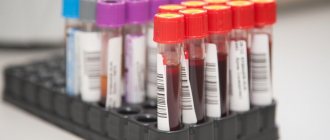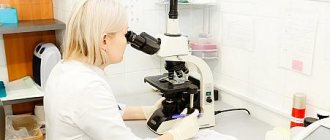The kidneys are, without any exaggeration, a vital paired organ, on the condition of which the health of the entire organism depends.
The kidneys are involved in the process of filtering blood plasma and perform endocrine, metabolic and regulatory functions. Pathological changes in this organ lead to the launch of a chain reaction of malfunctions in the functioning of the entire organism.
Kidney diseases often cause disability, and in severe advanced cases, death of the patient.
Pathological changes in the kidneys can be provoked by many factors: various infections, intoxications, hypothermia, vascular lesions, tumor formations, systemic diseases, etc. There are also congenital reasons.
The specificity of kidney diseases is such that we can talk about effective treatment only in cases where the disease is detected at sufficiently early stages. With late diagnosis, we can only talk about maintenance therapy and prolongation of life.
This is why timely screening for kidney disease is so important! In this article we will tell you what tests you need to take to check your kidneys.
How to check your kidneys at home
Kidney pathologies have similar symptoms to gastroenterological diseases and problems of the reproductive system.
Main distinctive symptoms:
- Back pain above the waist. Shooting acute pain is a sign of renal colic. Aching pain indicates chronic pathology.
- High blood pressure.
- Edema. They arise due to poor functioning of the organ. The liquid is not filtered into the urinary system, but accumulates in the tissues of the body. Most often the legs swell.
- Change in urine color. Depending on the cause of the problem, the urine may change color to brown or orange, mucus, streaks of blood, and flakes may appear in it.
- The volume of urine excreted per day changes. Normally, a person produces about 1.5-2 liters of urine per day. If this amount increases or decreases without changes in the drinking regime, the kidneys are not working properly.
If disturbing symptoms appear, be sure to visit a doctor. It is impossible to treat any disease on your own, since without test results a correct diagnosis cannot be made. Kidney disease can only be suspected if most of the symptoms are observed.
Tests to check your liver
You should consult a physician to check the functional reserves of the liver if you have the following symptoms:
- yellow skin tone;
- itching and rash on the skin, dryness and flaking;
- persistent discomfort or pain in the right side;
- bowel dysfunction (constipation);
- enlargement of the abdomen, appearance of venous patterns (stars) on the skin;
- plaque and cracks on the surface of the tongue.
The first thing the therapist prescribes is a biochemical blood test. Based on its results, the doctor evaluates the concentration of ALT and AST, bilirubin, albumin, the value of the prothrombin index and the activity of alkaline phosphatase. High levels of ALT and AST enzymes can signal the development of cancer and hepatitis. High alkaline phosphatase activity may also indicate cancer. Elevated bilirubin levels in most cases indicate jaundice, and albumin levels indicate cirrhosis.
Additionally, ultrasound examination of the liver, biopsy, computed tomography, and radionuclide scanning of the organ are prescribed.
What does a doctor do first during an appointment?
A kidney examination is carried out by a nephrologist - a doctor who treats pathologies of this organ. You can come to see him either independently or with a referral from a therapist/urologist. After collecting anamnesis, the doctor examines the person using palpation and percussion. During this test, the area where the kidneys are located is felt and tapped. With the help of palpation, you can determine the prolapse of the kidney, and pain when pressing or tapping will be evidence of problems with the organ.
After the examination, the nephrologist will tell you where to start the diagnosis. Its stages and methods depend on the diagnosis that the doctor suspects during examination.
How to keep your kidneys healthy
To maintain kidney health, you need to monitor your emotions. Chinese medicine claims that the kidneys are responsible for love and kindness; they concentrate the energy that was transmitted by the parents at the time of conception.
The kidneys are very afraid of fear and fright, after which even uncontrolled urination can occur. And nervous parents are often the culprits of kidney problems in children, because their screaming and irritation penetrates the kidneys and makes the child suspicious and fearful. You should also not freeze your kidneys; they love warmth and comfort, so it is better to pamper them with a sauna or hot baths.
You need to keep your feet warm, go to bed on time and limit yourself to eating salty foods; your kidneys will be very grateful for pumpkin in the form of puree, juice, pumpkin-millet porridge.
ONLINE REGISTRATION at the DIANA clinic
You can make an appointment by calling the toll-free phone number 8-800-707-15-60 or filling out the contact form. In this case, we will contact you ourselves.
If you find an error, please select a piece of text and press Ctrl+Enter
Lab tests
Diagnosis of kidney disease is impossible without laboratory tests of blood and urine. Any disease disrupts metabolism; the composition and proportions of components in liquids change. These changes are clearly visible in the analyses.
What urine test should I take to check my kidneys?
Changes in the functioning of the filtering organs will affect the quantity, composition and consistency of urine released. Most often, the pathology can be recognized during a general analysis. But specific tests may be required to clarify the diagnosis.
General urine analysis
This is the main test needed to check your kidneys. Determines the amount of salts, urea and protein in urine. To obtain correct results, you should not take medications or eat coloring foods on the eve of the examination - they change the shade and transparency of the liquid. If the use of medications cannot be stopped, doctors must be warned about taking the medications.
For examination, it is necessary to take 30-50 ml of morning urine from the middle portion.
According to Zimnitsky
This test determines kidney function by measuring the concentration and dilution of urine. A daily volume of urine is provided to the laboratory for testing. The results are distorted in women during menstruation, so it is better not to donate urine in the first days of the cycle.
The same test determines the deficiency of urine production or excess urine. The results of the analysis should take into account the patient’s drinking regime, that is, the amount of liquid he drinks during the day. The norm is 2 liters, but deviations within half a liter are acceptable.
According to Nechiporenko
In kidney failure, urine production is intermittent. Nechiporenko analysis reveals this condition. For a reliable result, you will need to collect urine every hour for 12 hours. Sometimes patients falsify the result by collecting urine every few hours and dividing it into several parts. These actions lead to false test results, making it difficult to make a diagnosis.
Bakposev
Mandatory tests for kidney inflammation include bacterial culture. In the laboratory, a small amount of urine is examined under a microscope to determine the pathogenic microorganisms in it, as well as their variety and resistance to antibiotics.
Other techniques
A complete kidney exam includes testing for specific indicators of chronic disease. For example, people with diabetic nephropathy need to regularly check the level of albumin (protein) in their urine.

Another specific analysis for functional diagnostics is the Bence-Jones study. This is how kidney tumors are determined.
General clinical and biochemical blood test
Diagnosis of kidney disease always includes a blood test. It shows the concentration of different substances, which changes during diseases. Normally, the blood in the kidneys is cleared of urea, creatinine and uric acid. In case of illness, the indicators of these substances in the general analysis will exceed the norm.
A biochemical study shows changes in the level of protein and kidney enzymes. This test does not show the condition of the kidneys and does not identify a specific disease.
Kidney tests
You need to check your kidney system if you have:
- blood pressure constantly increases;
- the color and smell of urine changes, bloody inclusions are observed in it;
- frequency of urination increases, especially at night;
- urine output decreases or increases;
- urination is accompanied by attacks of pain;
- pain appears in the lumbar area;
- face and legs swell;
- shortness of breath appears;
- I am constantly thirsty, but have virtually no appetite.
To check liver function, a general urine and blood test is prescribed. A urine test according to Nechiporenko and determination of protein levels using the Bence-Jones method are also recommended.
Additionally, ultrasound, scintigraphy and x-ray examination of the organ are prescribed.
Instrumental methods for kidney diagnostics
Hardware diagnostics provide information about organ damage and the localization of inflammatory and tumor processes. Non-invasively, such data can be obtained using ultrasound, x-rays, and tomography. Before examining your kidneys, you must obtain a referral from your doctor about the need for procedures.
Ultrasound
The method is based on the reaction of tissues of different densities to ultrasound. Thanks to ultrasound, you can determine the size of the kidneys, their location in the body, the presence of sand, tumors and inflammation. There are more accurate methods, but due to contraindications, they are prescribed only if it is impossible to determine the pathology using ultrasound.
X-ray
An X-ray examination shows the condition of the kidneys, the presence of tumors, displacement, clogged ducts. Most clinics are equipped with devices for X-ray examination.
The disadvantage of x-rays is the harm caused to the body by radiation. This one-time procedure will not cause problems, but its regular use is contraindicated. In this regard, x-rays are prescribed only if a serious pathology is suspected. As a preventive measure, it is preferable to use ultrasound.
Biopsy
During this test, a sample of kidney tissue is taken for analysis. A biopsy is prescribed if there is a suspicion of cancer or a cyst. By analyzing kidney tissue, you can find out the nature of the tumor.
Endoscopy
Non-traumatic or low-traumatic method of research. An endoscope with a camera placed on it is brought to the organ through the ureter or a small incision on the body. Using this method, you can visually examine the injured or inflamed area of the kidney. Endoscopic techniques are also used for minimally invasive surgical interventions.
Computed and magnetic resonance imaging
Modern methods of examining the kidneys, which provide information about the condition of the organ in a three-dimensional projection. The disadvantage of these studies so far is their high cost. Magnetic resonance imaging cannot be performed on patients with pacemakers. Most often, these studies are carried out in private offices or in regional medical centers.
Chromocystoscopy
The patient is injected with a substance that colors the urine. After this, an X-ray examination of the kidneys is performed. Prescribed if tests have shown a violation of the excretory and secretory functions of the kidney.
Scintigraphy
A person is injected with a radioactive drug that accumulates in the kidneys. After this, a study is carried out using a gamma camera. The drug is harmless and is excreted in the urine within several hours after injection.
The examination reveals renal failure, abnormalities in organ development, hydronephrosis, metastases from tumors.
Excretory urography
The method is based on the same technique as with scintigraphy. Instead of being examined in a gamma camera, after the person is injected with a radioactive substance, they are placed under an X-ray machine and pictures of the kidneys are taken every few minutes. The results show stagnation of urine, narrowing and blockage of the ureters, and kidney stones.
Angiography
Another examination with a coloring pigment. The blood vessels of the kidneys are stained with a radioactive substance. After the injection, the person is taken pictures using an X-ray machine, magnetic resonance imaging or computed tomography scanner. Blood flow pathologies are clearly visible in the photographs. The analysis is prescribed if aneurysms, blood clots, stenoses, or internal bleeding are suspected.
Other methods
X-ray diagnostic methods require caution. Dye preparations are considered harmless, but their use requires indications for examination. Therefore, such methods are a last resort. Urologists mainly prescribe ultrasound and CT/MRI. If cancer is suspected, a biopsy is used.
How much does it cost to check kidney function in Moscow clinics?
A general blood and urine test can be taken at municipal clinics if there is any suspicion of kidney disease. The cost of further diagnostics depends on the chosen methods and indications. X-ray and ultrasound examinations are available in every institution. To conduct a tomographic examination, magnetic resonance imaging and some tests, you will need to go to private clinics. The average cost of research is:
- General blood test – 200-500 rubles.
- General urine analysis – 175-200 rubles.
- 200-700 rub. – for laboratory tests of urine according to Zimnitsky, Nechiporenko, Reberg.
- 1200-3000 rub. for ultrasound examination, including the use of special reagents.
- MRI and CT scans cost 3-6 thousand.
Kidney diseases are dangerous and easier to treat in the early stages. As the disease progresses, it will be necessary to use more expensive and complex diagnostic and treatment methods. To prevent risks, it is worth checking your kidney health during an annual medical examination.









